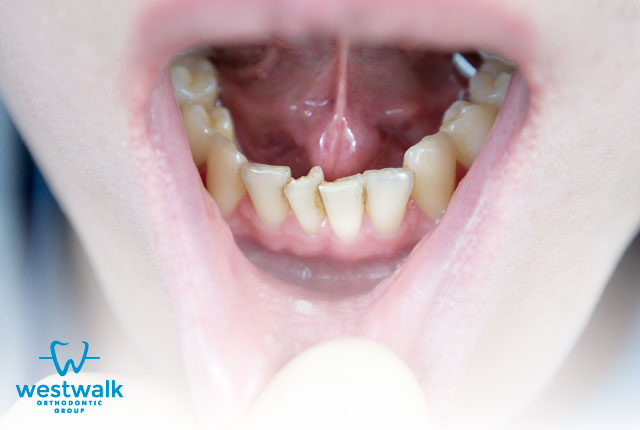Does Sucking Your Thumb Mess Up Your Teeth?
Orthodontists have a variety of tools and treatments at their disposal to treat every kind of situation. Whether it’s a case of a bad bite or badly aligned teeth, your orthodontist will do their best to give you the beautiful and healthy smile you wish for. However, the best results you can get are the ones that come from catching an issue before it creates serious consequences. So, remember to always inform your orthodontist of any weird habits you may notice on yourself or your child, as it could save you years of treatment if caught on time.
Thumb Sucking
It’s completely normal for children to suck their thumb from a very young age up to around 4 years old. Usually, they leave it on their own, and it’s not something to be too worried about. In some cases, however, kids suck on their thumb with a lot of force and do it very consistently.
According to WebMD, some possible effects of a child vigorously sucking their thumb are the upper jaw narrowing because of the suction, causing the bottom and top teeth to misalign, and if the patient also had a crossbite, the appearance of a hole in the roof of the mouth.
It was thought that there couldn’t be any lasting damage to your child’s mouth as long as they stopped sucking their thumb before their permanent teeth grew. Now, however, some studies suggest that thumb sucking could have lasting effects from as early as 2 years old. The best thing you can do to avoid any damage is to keep an eye on your child so you can identify how much force is put into it and how constant it is. You should also take them from a very young age to a dentist. There they will be able to detect any anomaly and take your observations into consideration.
Tongue Thrusting
Tongue thrusting refers to the tongue pushing forward when swallowing to the point that it touches the teeth. Because of the strong pressure that the tongue exerts and its being a recurring habit, it can eventually lead to malalignment of someone’s teeth, especially if they develop the habit before or while their permanent teeth are growing. When this happens, you can see an opening that doesn’t close in the patient’s front teeth. The name for this condition is generally called an open bite.
Tongue thrusting as a habit can be a result of many different factors like thumb sucking for long periods, reverse swallowing, facial factors inherited, allergies, etc. Fortunately, tongue cribs exist to fix this exact problem.
A Tongue crib is a little metal cage that attaches itself to your molars. The metal cage limits your tongue’s movement and doesn’t allow it to put pressure on the frontal teeth. The metal cage also limits the patient’s ability to suck on their thumb or other fingers, thus removing two dangerous habits that are threatening to your oral health. Teens and adults go through different treatments that can come in the way of tongue cribs in braces, night guards with tongue cribs in them, and tongue therapy.
Tooth Grinding
As the name implies, tooth grinding happens when you grind your teeth consistently throughout the day and night, most of the time without you noticing. Bruxism, as it’s also called, can be a result of stress, anxiety, sleep apnea, having a bad bite, and more. Regardless of the cause, tooth grinding opens a path to a variety of complications ranging from extra wear and tear to a patient’s teeth and restorations to muscle pain and loss of jaw movement.
There is really only one appliance that tackles tooth grinding, a mouth guard. A mouth guard will prevent damage from your grinding during nighttime, allowing you to release some tension and sleep better. Your dentist can make a mouth guard specifically for you, or you can buy an over-the-counter one if you would like to save some money. Your dentist may also recommend you try to be more aware of when you are grinding your teeth. Just being aware of the actions helps in avoiding it. If there’s still discomfort, they can prescribe you muscle relaxants.
Contact Your Norwalk Orthodontist at Westwalk Orthodontics Group
Regardless of what habit you or your child may have, don’t ignore it as it could have serious consequences if left untreated. Talk about it to your dentist so they can find the best solution to your problem. For any questions regarding your dental habits and what to do about them, contact us at Westwalk Orthodontic group here.

